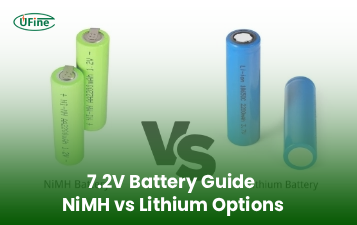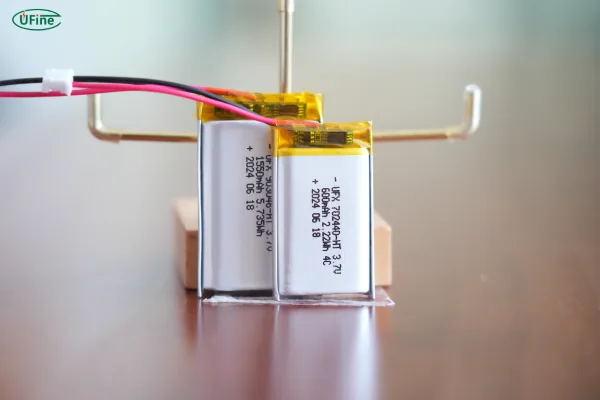
- Part 1. Why do batteries need to be recalled?
- Part 2. What are the difficulties in battery recalls?
- Part 3. Why are lithium batteries more dangerous to be recalled?
- Part 4. When should batteries be recalled?
- Part 5. What are the effects of battery recalls?
- Part 6. How to avoid battery recalls?
- Part 7. Final thoughts
Battery recalls sound like a standard safety action. But are they? Not always. Unlike other product recalls, battery recalls can be urgent, hazardous, and sometimes even life-threatening. Especially when it comes to lithium batteries, the risks go beyond inconvenience—they can involve fire, explosion, and serious injury.
In this article, we’ll explore why battery recalls happen, the challenges behind them, and why they’re often more dangerous than we imagine. We’ll also look at how companies can prevent battery recalls in the first place.
Let’s dive in.
Part 1. Why do batteries need to be recalled?
First, let’s start with the basics. A battery recall is when a company asks users to stop using certain batteries and return them for replacement or repair. This usually happens when a safety risk has been found—something like overheating, catching fire, leaking chemicals, or even exploding.
Here are some common reasons for battery recalls:
- Manufacturing defects
- Poor quality control
- Contamination during production
- Improper design or insulation
- Use of substandard materials
These issues might not show up right away. A battery could work fine for weeks or months before showing signs of failure. That’s what makes them so dangerous.
The scary part? Many recalls only happen after accidents have already occurred—not before.
Part 2. What are the difficulties in battery recalls?
Recalling batteries is not as easy as recalling food or clothing. There are many layers of complexity involved. Let’s look at a few of them.
a. Identifying the Fault
It’s hard to detect which batch or model is at risk. Batteries don’t always show visible signs of failure until it’s too late.
b. Locating the Products
Batteries are used in all sorts of products—phones, toys, laptops, e-bikes, power banks. Tracing where they’ve been sold or shipped can be very difficult.
c. Getting Customers to Respond
Even when a recall is announced, many people ignore it. Some don’t know about it. Others think, “It won’t happen to me.”
d. Safe Handling and Return
Shipping faulty batteries is dangerous. Damaged lithium batteries are considered hazardous materials. They can’t just be dropped in the mail.
Lithium Battery Shipping Laws by Country
All these factors make battery recalls slower, riskier, and more costly.
Part 3. Why are lithium batteries more dangerous to be recalled?
Now, let’s talk about lithium batteries. These are the most commonly used batteries today—and the most dangerous when things go wrong.
Why? Here are a few reasons:
a. High Energy Density
Lithium batteries store a lot of energy in a small space. If they short-circuit, that energy is released very fast. This can cause a fire or explosion.
b. Flammable Electrolyte
Most lithium-ion batteries use a flammable liquid inside. If the battery casing breaks or gets punctured, it can ignite.
c. Sensitive to Temperature
They don’t like extreme heat or cold. If exposed to the wrong conditions, lithium batteries can fail or swell.
d. Chain Reaction Risk
When one cell in a battery pack fails, it can trigger others to fail. This is called thermal runaway. It’s very hard to stop once it begins.
That’s why lithium battery recalls must be taken seriously. And they’re not rare—many top brands have issued them, including phone makers, laptop companies, and e-bike manufacturers.
Part 4. When should batteries be recalled?
This is a key question. How do companies know when to issue a recall?
Usually, recalls happen after a pattern is noticed. For example:
- Customers report overheating issues
- Devices start to swell, smoke, or burn
- There are injuries or property damage
- Safety tests show serious design flaws
Once enough reports come in, the company may work with safety agencies like the Consumer Product Safety Commission (CPSC) or similar groups in other countries. They decide if a recall is needed.
Sometimes, companies act voluntarily to protect users. Other times, they are forced to recall by regulators.
Either way, timing is crucial. The longer a company waits, the more damage the faulty batteries can cause.
Part 5. What are the effects of battery recalls?
Battery recalls are not just technical issues. They have a huge impact on businesses and people. Let’s break it down.
a. Safety Hazards
The biggest concern is always people’s safety. Faulty batteries can cause burns, fires, or even deaths.
b. Product Damage
If a battery fails inside a device, it can ruin the whole product. That’s costly for users and companies alike.
c. Financial Loss
Recalls are expensive. Companies must replace batteries, cover damages, and deal with lawsuits. In some cases, the cost runs into millions of dollars.
d. Brand Reputation
A single battery recall can damage a company’s image. People may lose trust in the product or brand altogether.
e. Regulatory Penalties
If a company hides problems or delays a recall, they could face legal action and fines.
Clearly, battery recalls have wide-reaching effects—beyond just the batteries themselves.
Part 6. How to avoid battery recalls?
Now for the big question: Can battery recalls be avoided?
The answer is—not entirely, but many can be prevented with better design, testing, and manufacturing. Here’s how:
a. Use High-Quality Battery Suppliers
Partnering with a reliable battery manufacturer is the first and most important step.
Ufine Battery, a trusted Chinese custom battery manufacturer, offers safe and high-performance lithium batteries tailored to your needs.
They produce:
- Lithium polymer batteries
- LiFePO4 batteries
- 18650 batteries
- Cylindrical lithium batteries
- Ultra-thin batteries
- High-rate and temperature-resistant batteries
With strong R&D and strict quality control, Ufine Battery helps companies reduce risks from the start.
Contact Ufine Battery today to discuss your custom battery needs:
b. Invest in Battery Management Systems (BMS)
Smart BMS can monitor temperature, voltage, and charge cycles. They can shut down unsafe operations before failure happens.
c. Test Under Extreme Conditions
Manufacturers should simulate real-world use—like vibration, drops, and high temperatures—to catch hidden flaws.
d. Educate Users
Many battery failures happen due to misuse—overcharging, physical damage, or exposure to heat. Clear instructions help users stay safe.
e. Comply with International Standards
Follow safety certifications like UL, IEC, or UN38.3. These ensure your battery design meets global safety norms.
Part 7. Final thoughts
Battery recalls are serious. They go beyond returns and refunds. They involve real risks to people, homes, and businesses. Lithium battery recalls, in particular, can turn deadly if not handled properly.
That’s why prevention is always better than cure. From using safe materials to working with proven suppliers like Ufine Battery, companies must take every step to minimize risks.
If you’re designing a new device or upgrading a current one, don’t compromise on battery quality. One small defect could become a massive disaster.
Related Tags:
More Articles

NiMH vs Lithium 7.2V Battery and Charger: Which Is Better?
Compare 7.2V NiMH vs Lithium batteries and chargers in 2025. Learn runtime, weight, charging, lifespan, and cost to choose the best for your device.
How to Choose the Right 7.2V Battery and Charger for Your Device?
Learn how to choose the right 7.2V battery and charger for optimal performance, safety, and longevity across RC, tools, medical, and industrial devices.
Big Square Battery Safety Standards You Must Know
Learn key safety standards for big square batteries to avoid fire risks, shipping delays, and compliance issues in EV, industrial, and energy storage projects.
Big Square Battery Applications in Solar & Industrial Equipment
Big square batteries deliver high capacity, stable output, and long life for solar, industrial, and backup power. Explore key uses and advantages.
Big Square Battery vs Cylindrical Battery: Complete 2025 Guide for EVs, ESS & Industrial Devices
Choosing the right battery is key for designers and engineers. Compare big square vs cylindrical batteries to find the best fit for your application.



